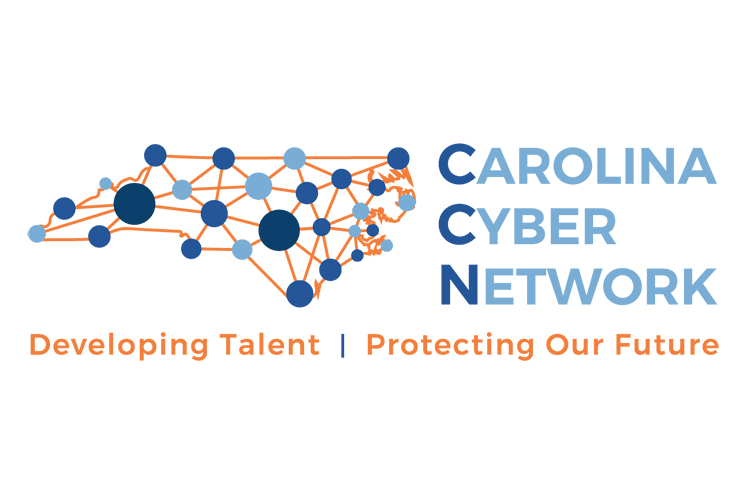UNCW is among four institutions of higher education selected to join the fast-growing ranks of the Carolina Cyber Network, an organization dedicated to closing the critical gap in cybersecurity workforce needs and available workers.
Cleveland Community College, Isothermal Community College and Johnston Community College will also join the network. The four new CCN members exhibit the core values of the Carolina Cyber Network, equipping students with “hands-on” technical skills, essential life skills and work-based learning experiences that prepare the students to be “job-ready” to serve the state’s communities through employment in public and private agencies, said Dr. Mark Sorrells, president of Fayetteville Technical Community College, which is a co-founder and leader of the three-year-old CCN organization. CCN now has 18 four-year and two-year member schools, all in North Carolina.
“We are excited to partner with these schools to further grow and strengthen the cybersecurity talent pool available in North Carolina,” said Dr. Sorrells.
UNCW, one of the National Security Agency’s designated
Centers for Academic Excellence, is a welcome addition to CCN with its emphasis on maritime cybersecurity issues and missional focus on excellence and innovation. Since the inception of
UNCW’s Center for Cyber Defense Education in 2018, significant student interest in cybersecurity education similarly led to the launch of its
cybersecurity undergraduate degree in the fall of 2022.
“UNCW is proud to join the Carolina Cyber Network,” said Chancellor Aswani K. Volety. “Our faculty and staff welcome the opportunity to strengthen our relationships with the outstanding group of North Carolina community colleges and universities in CCN. We look forward to creating connections to enhance cybersecurity education, research and training at UNCW and across North Carolina.”
UNCW's six cybersecurity programs provide students with both technical and managerial skills. With the variety and maturity of the programs, UNCW produces high-quality graduates supporting NC cybersecurity workforce development. Currently, there are more than 300 students enrolled in the programs.
The university plans to add maritime/transportation systems cybersecurity concentration to its Bachelor of Science in Cybersecurity in the near future with the hopes of establishing a maritime/transportation systems cybersecurity center in collaboration with cybersecurity researchers and educators.
UNCW is planning to offer two new classes focused on the new concentration: maritime cybersecurity and industrial cybersecurity. Currently, no school in North Carolina has a maritime/transportation systems cybersecurity specialization.
Cybersecurity program efforts at UNCW are collaborative and synergetic among many cybersecurity-affiliated faculty in both the
Department of Computer Science and the
Congdon School of Supply Chain, Business Analytics, and Information Systems with numerous outreach efforts coordinated through the university’s Center for Cyber Defense Education, directed since 2018 by Dr. Ulku Clark. New opportunities presented through the CCN will be supported by Academic Affairs and other university administrative units. UNCW plans to work with CCN members and create pathways for community college students to continue their cybersecurity education at UNCW.
“UNCW is excited that the partnership with CCN will provide UNCW students access to additional internship opportunities and skills development tools the coalition offers to CCN members,” said Dr. Clark.
For more information about CCN, visit
www.carolinacybernetwork.net.
